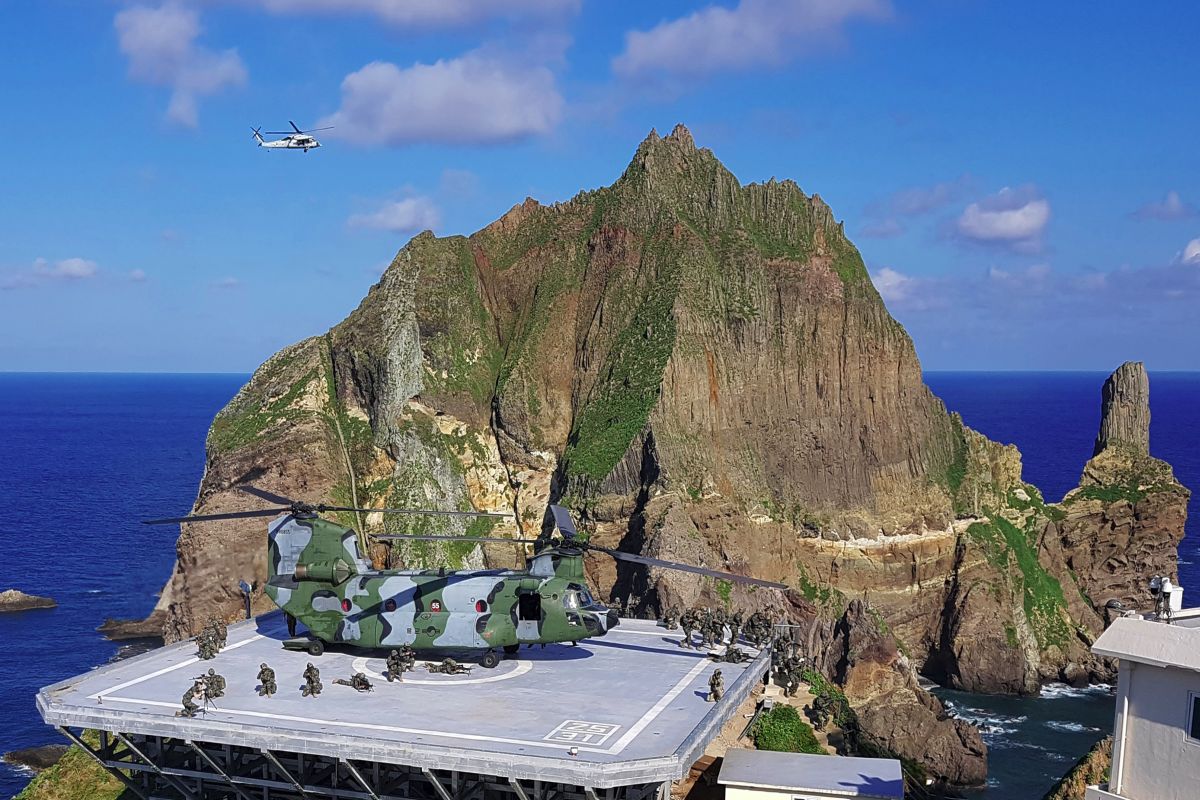In order to tackle challenges emerging out of China’s forced unification of Taiwan, Japan can now cut the shackles of its post world war II pacifist posture and let go of the restraints it has put on its Self-Defence Forces, media reports said quoting analysts.
Analysts believe the Taiwan issue presents a “life and death challenge” to Japan and Tokyo will now up its ante to make itself ready for the uncertainties in the region especially amid Chinese aggression, wrote Alberto Dolli in an article on appia institute website. It must be noted that Japan in the post-war era has adopted a pacifist constitution. Its defence forces also have limitations. However, now Japan in view of a more aggressive Chinese stance over Taiwan is aware and is moving away from its pacifist policies.
Advertisement
For instance, since 2015, Japan has removed many restrained its Self-Defence Forces which was in place since the end of World War II, the article read. China is worried whether countries like US and Japan in the coming future move away from One China policy.
There has been a longstanding dispute between Taiwan and China. On one hand, Taiwan considers itself an island de facto independent nation and on the contrary, Beijing considers the self-governed island as part of one China.
There have been diplomatic engagements between Taiwan and Japan. On September 26, a Taiwanese delegation was invited by the Fumio Kishida government to attend the state funeral of Japanese Prime Minister Shinzo Abe in Tokyo.
Not that the Chinese delegation was not inverted however Beijing found it awkward to adjust to the situation. China issued statement on September 27, stating “Japan needs to observe the principles set out in the four China-Japan political documents and the solemn commitments it has made, handle the relevant matters in strict accordance with the one China principle and refrain from providing any platform or opportunity for ‘Taiwan Independence’ separatist forces to engage in political manipulation.”
Japan, a Quad member country is striding cautiously as the geopolitical situation is volatile with the war in Ukraine. Japan and China already have several bones of contentions. Senkaku Islands in the East China Sea is one of them.
Japan is gearing up to present a stronger posture in the Taiwan Strait at the time when Tokyo and Beijing are celebrating 50 years of their diplomatic relations, the article added. Japanese PM Kishida also held talks with US over the current situation in the Taiwan Strait.
The article while quoting a White House statement mentions that both PM Kishida and the US Vice President “discussed the People’s Republic of China’s recent aggressive and irresponsible provocations in the Taiwan Strait, and reaffirmed the importance of preserving peace and stability across the Taiwan Strait.”
Japan’s cooperation with other defense forces has also seen an uptick. This year alone, Japan’s Self-Defence Forces participated in 50 percent more joint exercises with the US military than the same period of 2021.
The two countries held their last joint air force drills around Japan’s Okinawa close on the heels of China kicking off drills around Taiwan in the first week of August. According to Japan’s Ministry of Defence, Tokyo and Washington DC held a total of 51 bilateral exercises in 2022 as of the end of July, compared with 34 in the first seven months of 2021, the article added.











